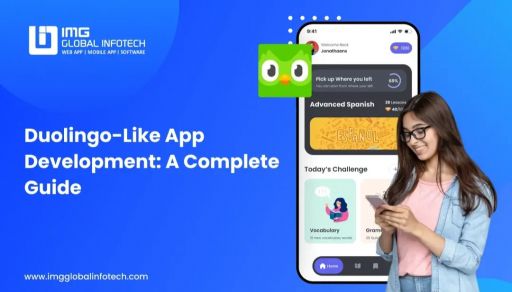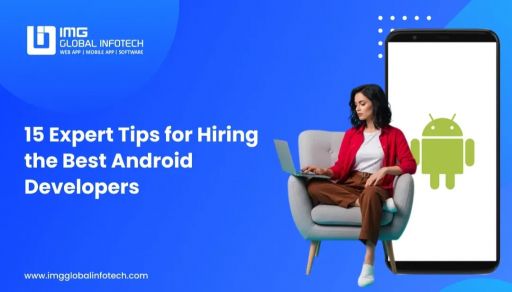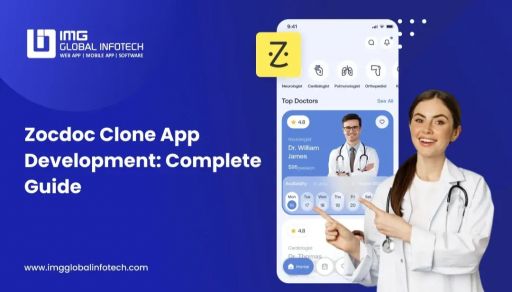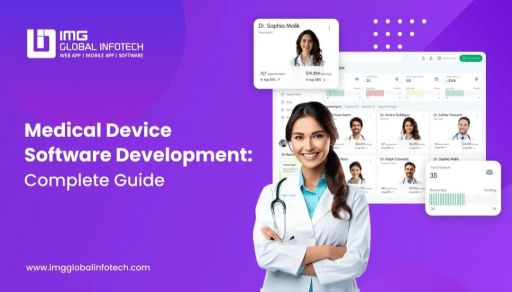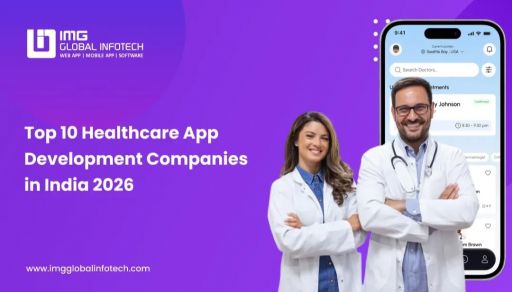How AI & ML Are Revolutionizing Android App Development?
Lokesh Saini
Jul 15, 2025

AI and ML are transforming Android mobile app development landscape, and in the user experience end, AI is making applications smarter, faster and more personalized. According to Statista, the global AI software market is projected to exceed around $126 billion by 2026, reflecting the great demand for more intelligent mobile solutions.
With over 3 billion active Android devices in the world, incorporating AI(ML) technology in Android apps open immense avenues for innovation and business opportunity. AI technologies are changing how apps think and interact with users, are more capable of predictive analytics, from voice recognition to smart personalization to customer service being more real-time. AI android app development has and is growing in the ways apps think, learn, and adapt to information significantly faster than its human counterparts.
This blog will explore how AI and ML is transforming Android app development, the popular use cases that have grown in recent years, what the future will hold for these capabilities, and what businesses can achieve by leveraging AI and ML capabilities in mobile apps.
How Artificial Intelligence is Creating Disruption To Android Mobile App Development?
Artificial Intelligence (AI) represents a paradigm shift in our digital lives, and in many ways the Android mobile app world is no exception. From user-experience enhancements to smarter functionality, AI has drastically changed the way Mobile app development companies build, design, and deliver mobile applications. That said, Android is the most popular mobile platform used in the world so the potential for opportunities by including AI are endless across a variety of industries.
1. Smarter Personalization
One of the most remarkable advantages in android app development is hyper-personalization. Hyper-personalization lets AI analyze user behavior, preferences, and interactions to provide customized app content and recommendations. Whether analyzing a shopping app or a streaming service, AI ensures that the user enjoys a customized experience on the platform, with each user receiving new products or content that suits their tastes and preferences. As a result, hyper-personalization increases user satisfaction, retention, and engagement rates for the ai in android app development.
2. Predictive Analytics
AI in android app development lets apps predict a user's behavior by synthesizing data from the past historical data. Predictive analytics are great for fitness, finance, and eCommerce apps! For instance, mobile app development trends could predict possible health risks based on someone's activity level, or a finance app could provide spending forecasts by analyzing past spending habits. In the end, predictive analytics allow businesses to make proactive decisions and ultimately enhance the overall value of the app.
3. Improved Security
Security is one of the most important aspects of mobile app development. ai android app development can boast better security features by implementing facial recognition, fingerprint scanning, and behavioral biometrics. AI can also assess anomalies in user behavior and alert the app in case of a security threat to combat fraud or unauthorized account access! This is especially helpful in banking or payment applications.
4. Voice and Language Processing
With the advances of AI-powered Natural Language Processing (NLP), android app development AI are capable of far more than ever before when processing language and producing natural interactions with people. NLP makes voice assistants, smart search, and multi-language interaction possible. Google Assistant, for example, uses AI to deliver prompt and precise voice responses.
5. Chatbots and Virtual Assistants
AI chatbots are becoming popular in Android apps in the customer service space. They can be available 24/7 and offer answers to common inquiries in real-time, as well as assistance to users. Over time, they become increasingly intelligent by learning from conversations, and minimizing human intervention is a significant cost savings in staff resources.
6. Enhanced Camera and Image Recognition
AI android app development is reshaping mobile photography by improving camera functionality, recognized features such as scene recognition, object recognition, and blurring backgrounds. Social media and photo-editing applications utilize AI to provide dynamic filters and photo features such as facial detection or augmented reality experiences that drastically improve the user experience.
Key Benefits of Implementing AI/ML into Android Apps
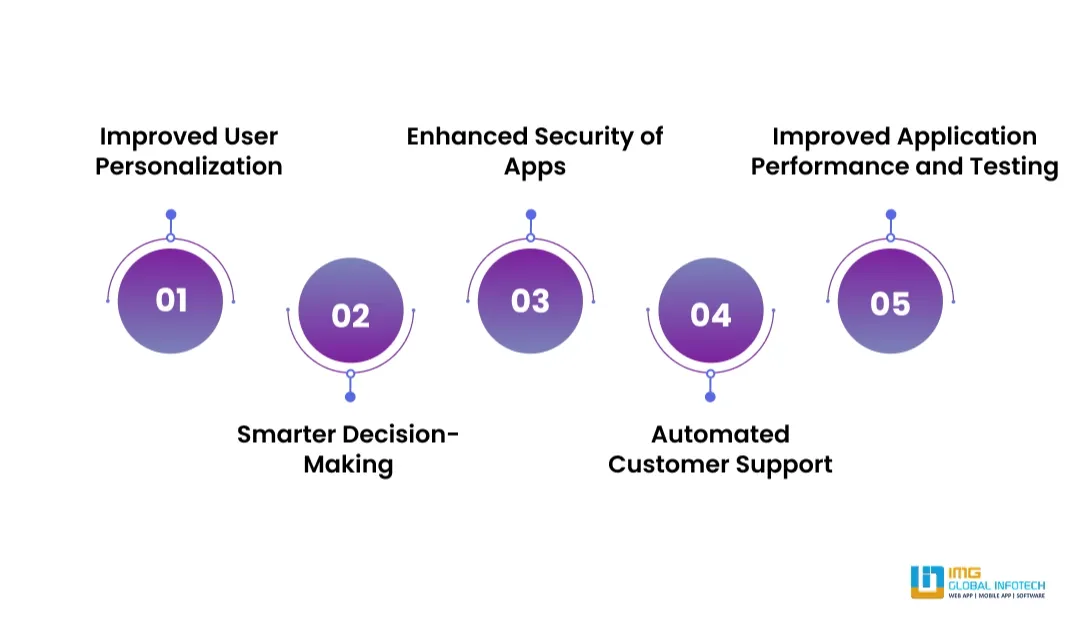
1. Improved User Personalization
AI and ML utilize users' behaviors, preferences, and patterns of usage and can provide personalization in app content, recommendations, and experiences. Whether that measurement means providing product recommendations, movie recommendations, or news recommendations, AI can personalize the app's interface in real time. Improved personalization for the user means user engagement is improved as well as overall user retention and satisfaction.
2. Smarter Decision-Making
AI in android app development can analyze huge amounts of data extremely fast and accurately. ML models extract patterns, detect anomalies, and take immediate actions that benefit the user experience. For example, a ride-monitoring app can forecast traffic volumes and assist with alternate faster routes for a user, or a health-monitoring app can determine if a user has deviated from their standard vitals.
3. Enhanced Security of Apps
The main worry among mobile apps is security, and AI can help alleviate that problem efficiently. AI will provide secured access with familiar types of technology, that include facial recognition, fingerprint scanning, and behavioral and biometric action. AI algorithms are also able to view behaviors as suspicious and flag potentially dangerous actions or even fraud in real-time. The latter is often heightened with use for banking or finance applications.
4. Automated Customer Support
AI chat and virtual assistance are designed to address customer queries around-the-clock and in all time zones (most importantly, at any-time) to deliver instant responses with no human engagement. Chatbots monitor and learn from user interactions and through human-like imitation continually adapt or improve. It is important to consider that AI supports customer queries and will help reduce customer support costs while striving for quicker issue outcomes thus opportunities for improved customer engagement.
5. Improved Application Performance and Testing
AI and ML can assist in testing and work automatically to identify buggy code, suggest operational modifications, and find potential performance conclusions. This effort claims the faster cycle-and-reliable delivery of Android app development will save time and effort of development short-cuts on the Ignatius repo.
Top Use Cases of AI & ML in Android Apps
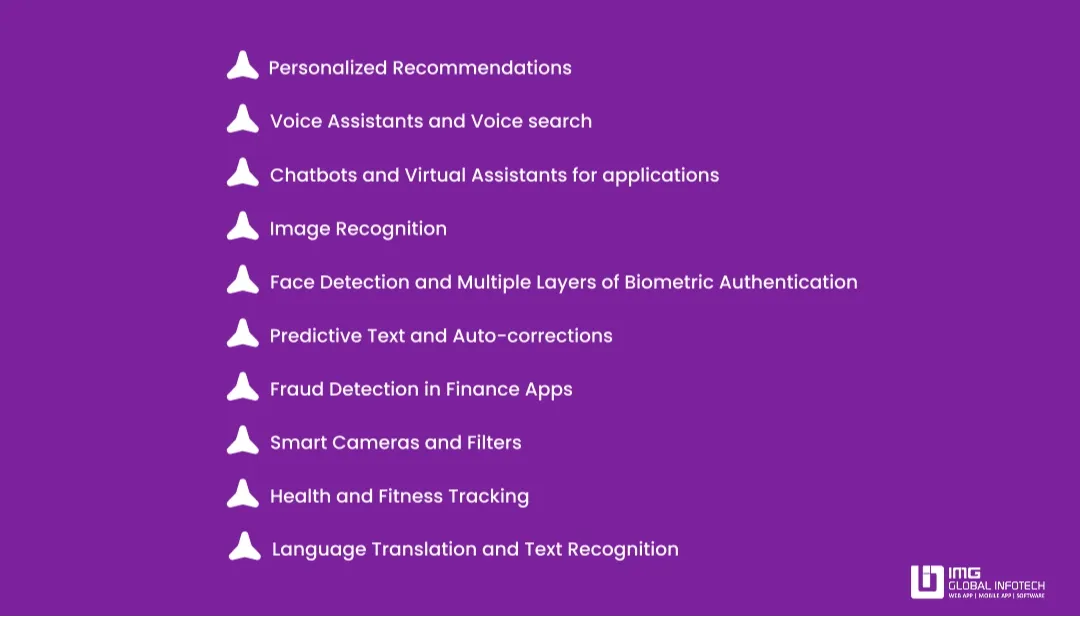
1. Personalized Recommendations
The fastest-growing form of mobile AI is in the form of recommendation engines. These algorithms, driven by AI, build an understanding of behavior, preferences, and usage patterns, and can suggest available content or products on platforms. For example, Netflix, Amazon and Spotify can deliver highly personalized content recommendations for their users which shows the impact AI can have on user engagement and retention.
2. Voice Assistants and Voice search
Some of the more advanced ai android app development utilize NLP programming along with machine learning to improve voice commands, devise action, and also learn over time based on how the user interacted with the platform.
3. Chatbots and Virtual Assistants for applications
AI powered chatbots can be integrated capable of providing voice or text customer interaction in direct interaction, scheduling an app to voice appointment, or even a "call external" which leverages someone to respond to support needs in a timely manner. Android app development using AI provides bots learn based on a build of user interaction, ultimately being smarter over time with the engagement.
4. Image Recognition
Machine Learning algorithms allow the software to recognize, label and zone images. For example, a standard thread Google Photos uses AI to recognize images of faces or pictures uploaded in one particular location, or various shopping iOS app development using ML for visual search, and a love/hate relationship by the end user when they look terribly wrong.
5. Face Detection and Multiple Layers of Biometric Authentication.
Android AI development will create options to use facial recognition in security sensitive Android apps. Using ML models to detect facial characteristics authenticated a user, who can then unlock their device or apps based on specific features returned from the face detection function to gain access to the app or sensitive parts in the app securely.
6. Predictive Text and Auto-corrections
An AI-based keyboard application (i.e. Google - Gboard; SwiftKey) uses AI and ML to learn and predict the user's next word, contextually suggest corrections and learn the user’s personal writing style to improve overall experience and communication.
7. Fraud Detection in Finance Apps
Banking and digital wallet apps use ML to spot abnormal transactions, recognize fraudulent behavior patterns, and alert users in real time. Android app development with AI can adjust continuously as new techniques in fraud emerge.
8. Smart Cameras and Filters
Android camera apps are beginning to use AI with things like scene detection and portrait mode or real-time beautification. Social media apps such as Snapchat and Instagram are applying ML to apply filters and lenses based on AR.
9. Health and Fitness Tracking
machine learning for android app development using ml kit utilize health data from wearables or sensors and review the data for insights, anomalies, and trends and to provide personalized recommendations for fitness. Google Fit is an example of a health Mobile app development doing this.
10. Language Translation and Text Recognition
AI-driven apps like Google Translate now use a combination of ML and many datasets to provide real-time language translation based on text and images. Optical Character Recognition (OCR) provides users with the place to extract text from a photo or scanned documents.
What Are the Future Trends in AI-based Android Mobile App Development?
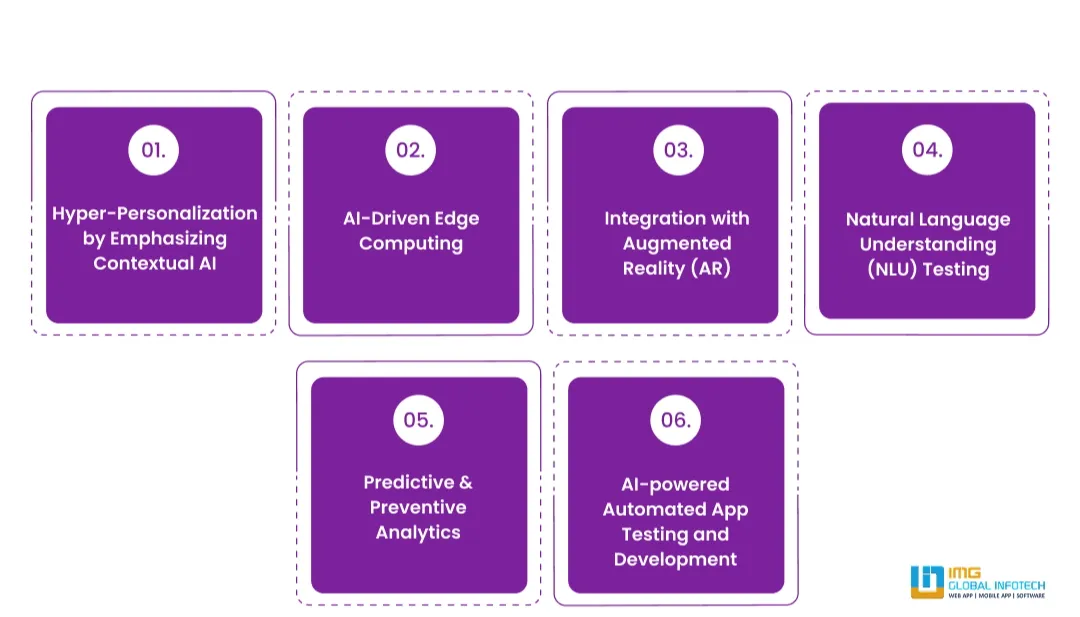
1. Hyper-Personalization by Emphasizing Contextual AI
Future aim is in android app development to optimize user experience based on real-time contextual analysis, including the user's location, behaviors, time, and even mood. CI algorithms will be able to quantify anticipated needs before the user reaches out for support thus elevating perceived app usability and enhancing the customer experience.
2. AI-Driven Edge Computing
As the performance of mobile devices continues to improve, and with the ability to deploy computing on-device, computing and AI processing will move from the cloud to edge. The trend will eventually lead to lower latency, enhanced data privacy and offline capabilities. Apps leveraging edge ai for android app development will be able to provide more real-time analytics such as facial recognition or language translation, all without the need for internet connectivity.
3. Integration with Augmented Reality (AR)
Artificial Intelligence (AI) and AR are colliding and providing new ways of immersive experiences for users. The future of Android apps especially in retail, gaming, and education will involve AI generating higher quality AR overlay, better object recognition capabilities, and scene analysis of environments, while giving intelligent and human-like interactions with AR as simulated real-world scenarios.
4. Natural Language Understanding (NLU) Testing
Through Machine Learning and Natural Language Processing (NLP), AI will be used to create more human-like results with voice assistants and chatbots with Natural Language Understanding (NLU). For example, Android apps would be able to understand regional accents from different lands, talk to people with different emotional tones and understand the contextual meaning of what the user/task being asked of it.
5. Predictive & Preventive Analytics
Android app development with ai will allow Android apps to make predictive assessments based on user behaviors, and then use that knowledge to mitigate, or prevent issues before they occur. A health app could predict a person was getting sick because of the daily vitals they had been inputting, or a banking app could warn/alert people before dismissively spending too much of their money/proceeds—creating smarter, preventative actions.
6. AI-powered Automated App Testing and Development
A tool for android app development will also affect the way you will be developing an Android app. AI coding tools will be able to generate code by using a verbal/written conversation in real language, perform automated user interface testing, and spot bugs. This will shorten the development cycles and allow you to get to market quicker and with more dependable results than ever before.
Conclusion
In the end, AI and ML have made a significant impact in developing Android mobile apps by providing apps that would enhance the app by being smarter, faster and more user-friendly. Whether it is creating personalized experiences, or real time decision making, these technologies are working stacking changing the future topology of mobile apps. At IMG Global Infotech, we leverage AI and ML to build intelligent, next-gen Android apps with enhanced with a platform to engage with each and every app's users that creates real value to the user and developer.Our AI app development company to create innovative, engaging and future-proof AI-driven mobile products that will move no matter the digital landscape.
-
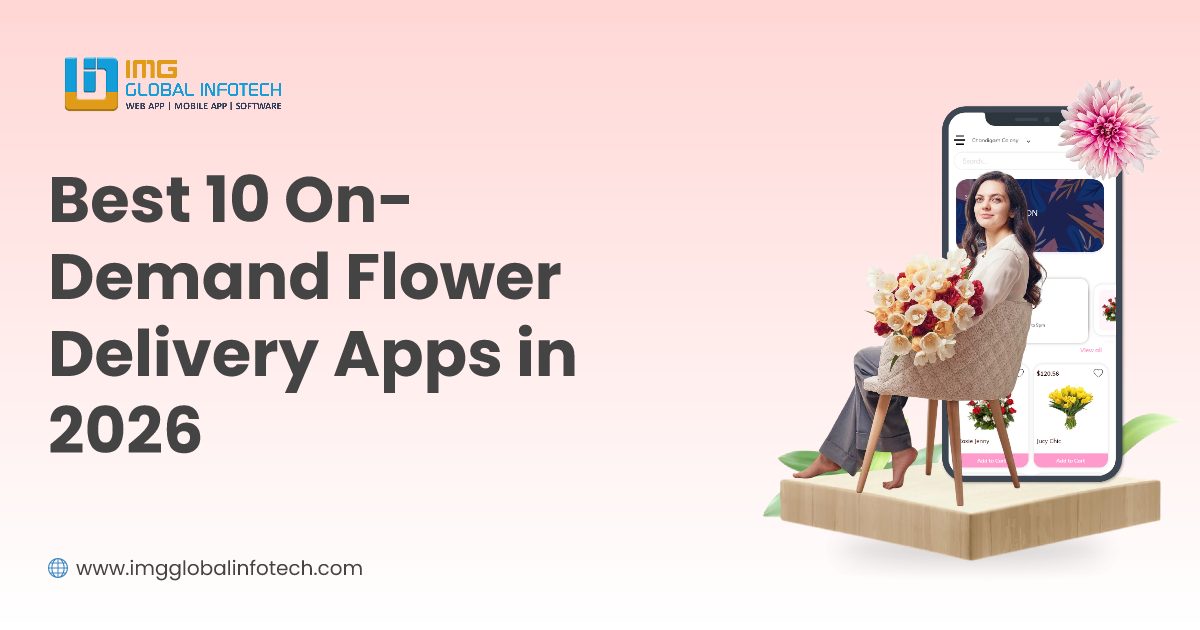 Top 10 Flower Delivery Apps in 2026
Top 10 Flower Delivery Apps in 2026
-
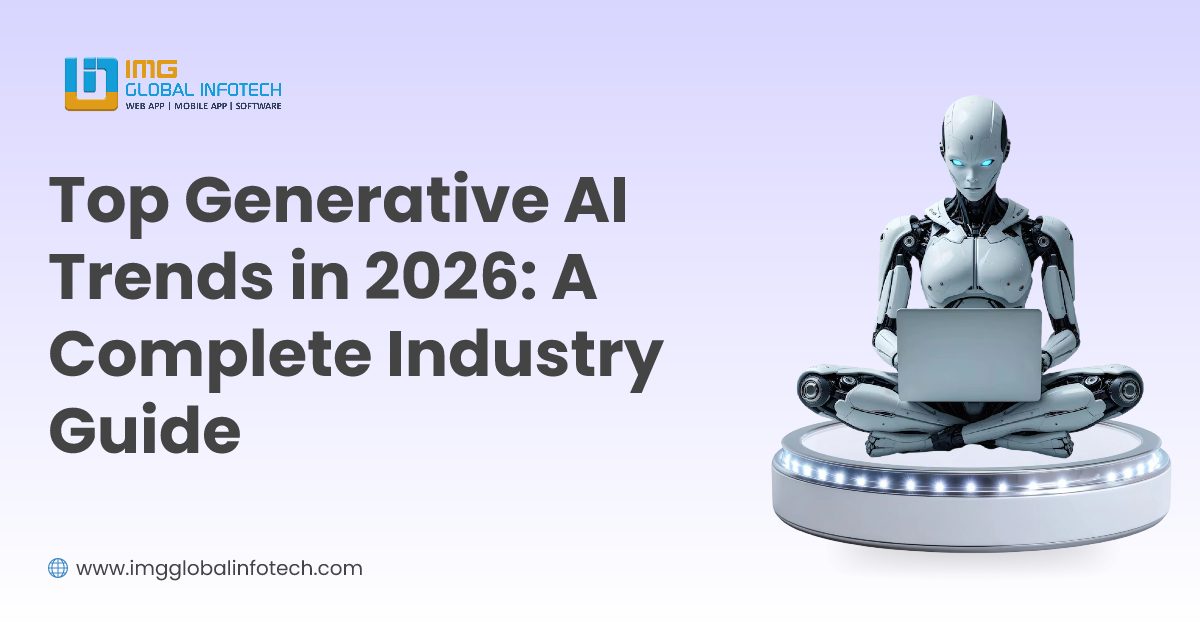 Top Generative AI Trends in 2026: A Complete Industry Guide
Top Generative AI Trends in 2026: A Complete Industry Guide
-
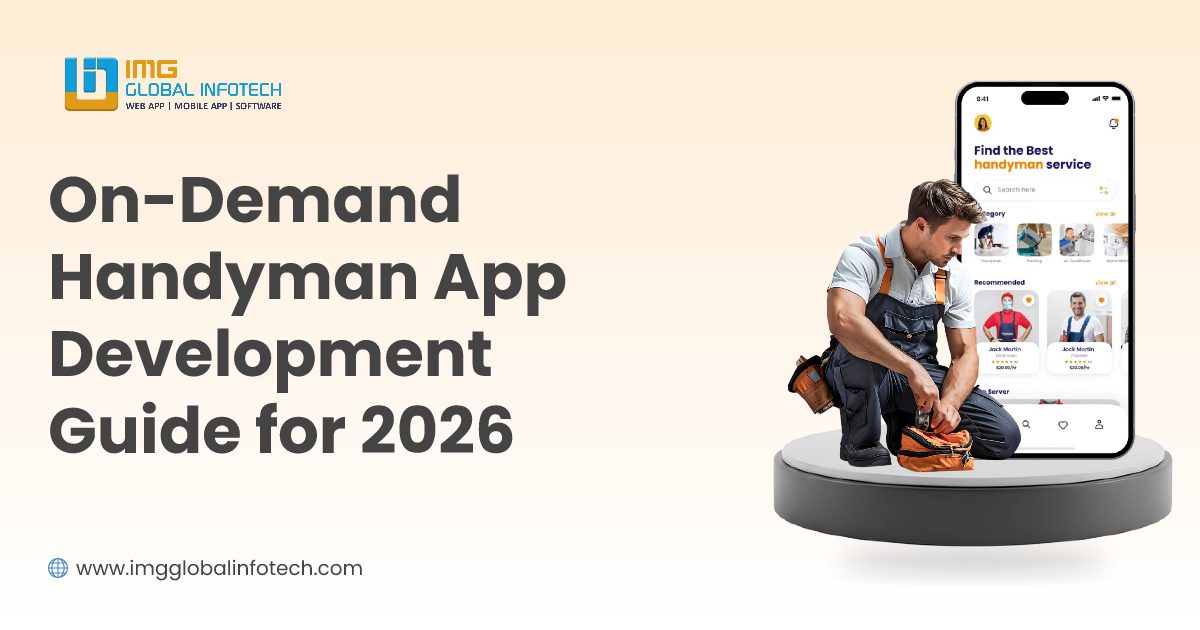 On-Demand Handyman App Development Guide for 2026
On-Demand Handyman App Development Guide for 2026
-
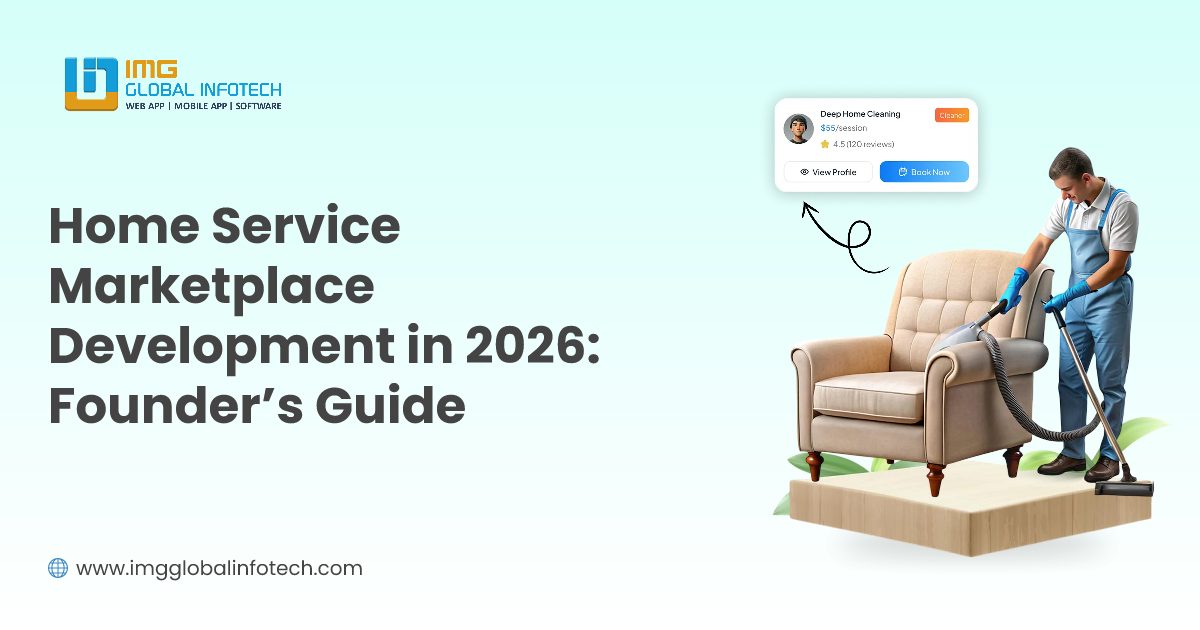 How to Build a Home Service Marketplace in 2026: Founder’s Guide
How to Build a Home Service Marketplace in 2026: Founder’s Guide
-
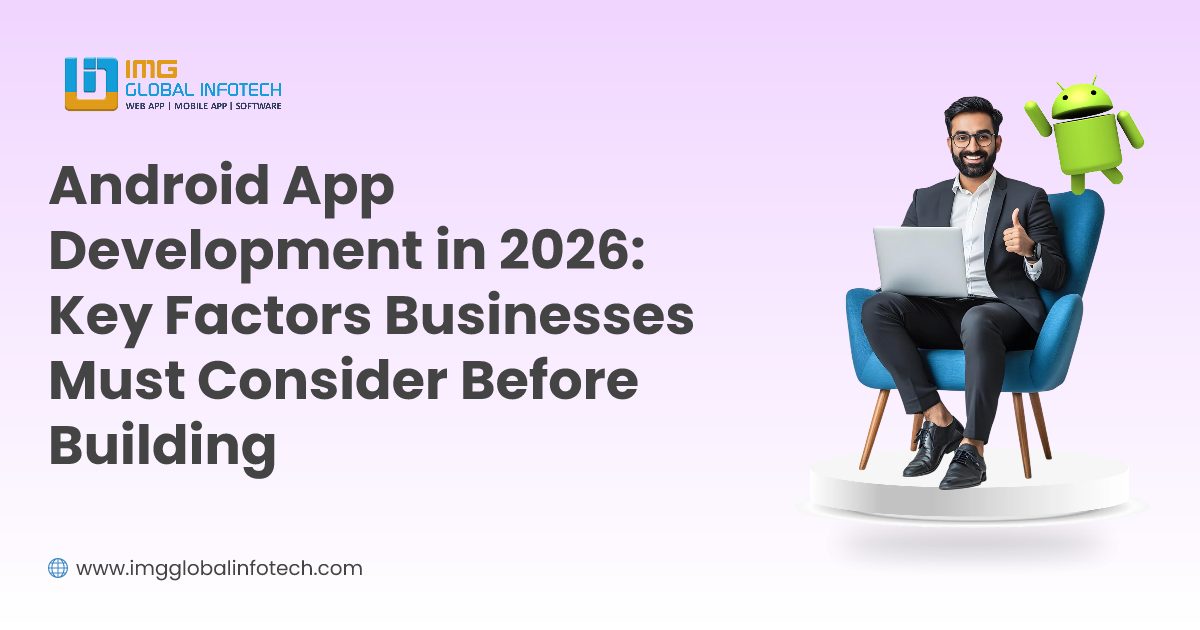 Android App Development in 2026: Key Factors Businesses Must Consider Before Building
Android App Development in 2026: Key Factors Businesses Must Consider Before Building
-
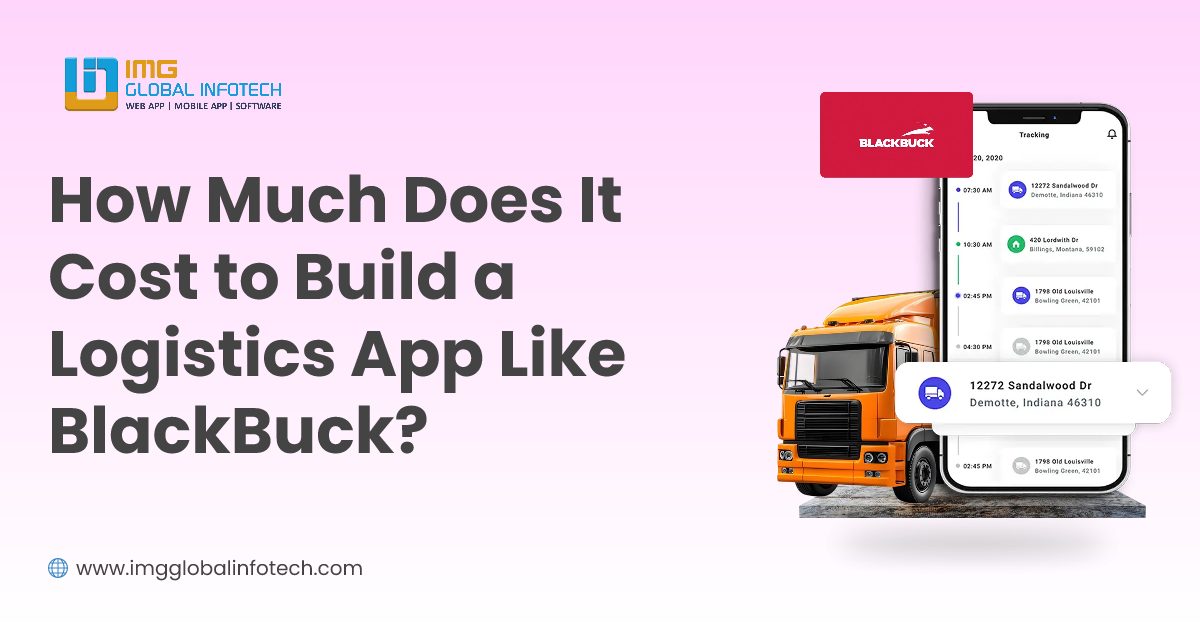 How Much Does It Cost to Build a Logistics App Like BlackBuck?
How Much Does It Cost to Build a Logistics App Like BlackBuck?
Lokesh Kumar is the Digital Marketing Manager & SEO Content Strategist at IMG Global Infotech, a top-rated Web & Mobile App Development Company. With extensive experience in digital marketing, SEO, and content strategy, he specializes in boosting online visibility and driving organic growth for startups, SMEs, and global brands. Lokesh is passionate about creating SEO-friendly, user-centric content that not only ranks but also converts. His deep understanding of digital trends and search algorithms helps businesses thrive in a competitive online space.


